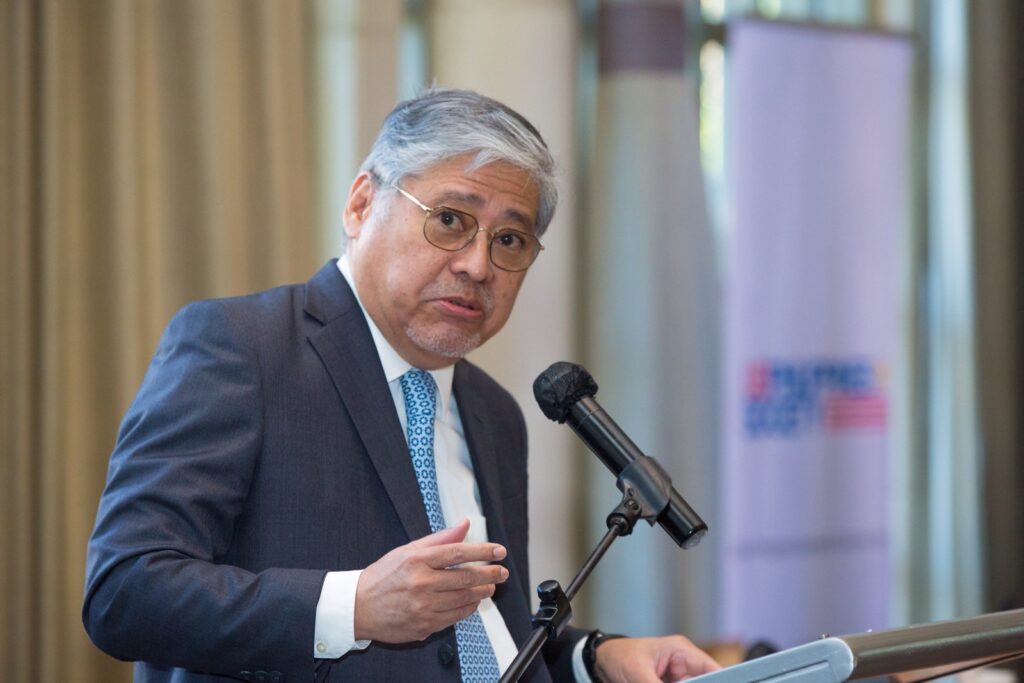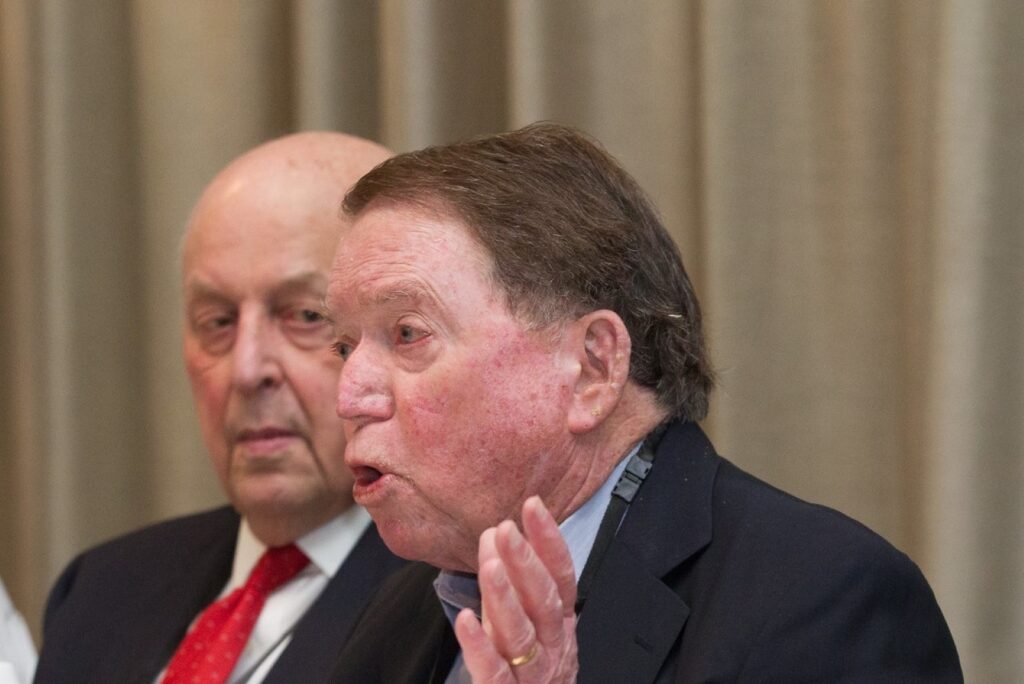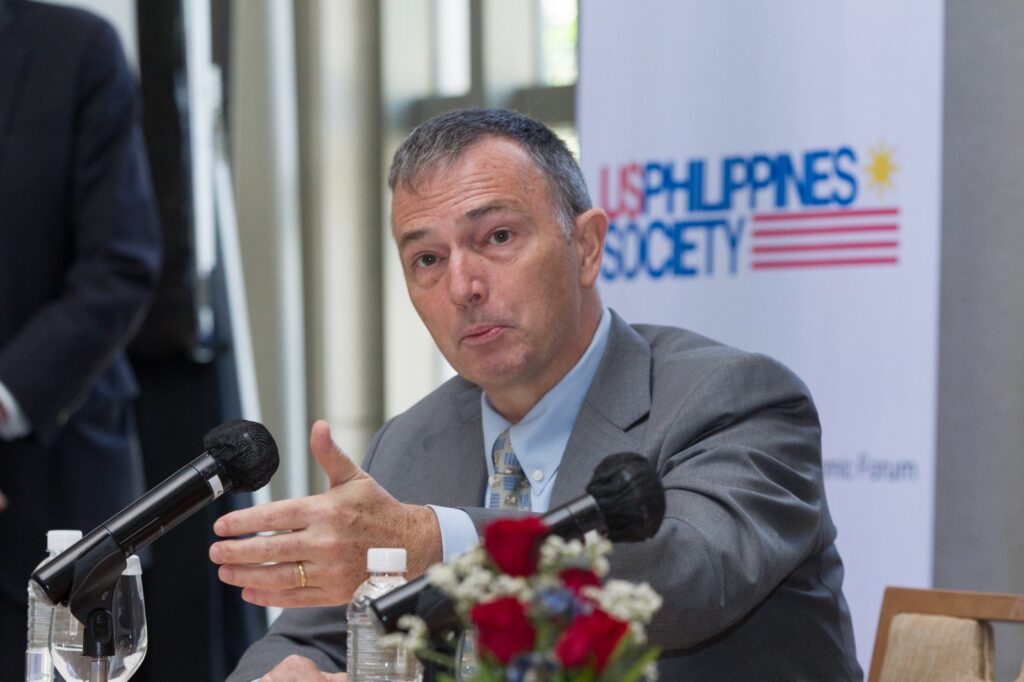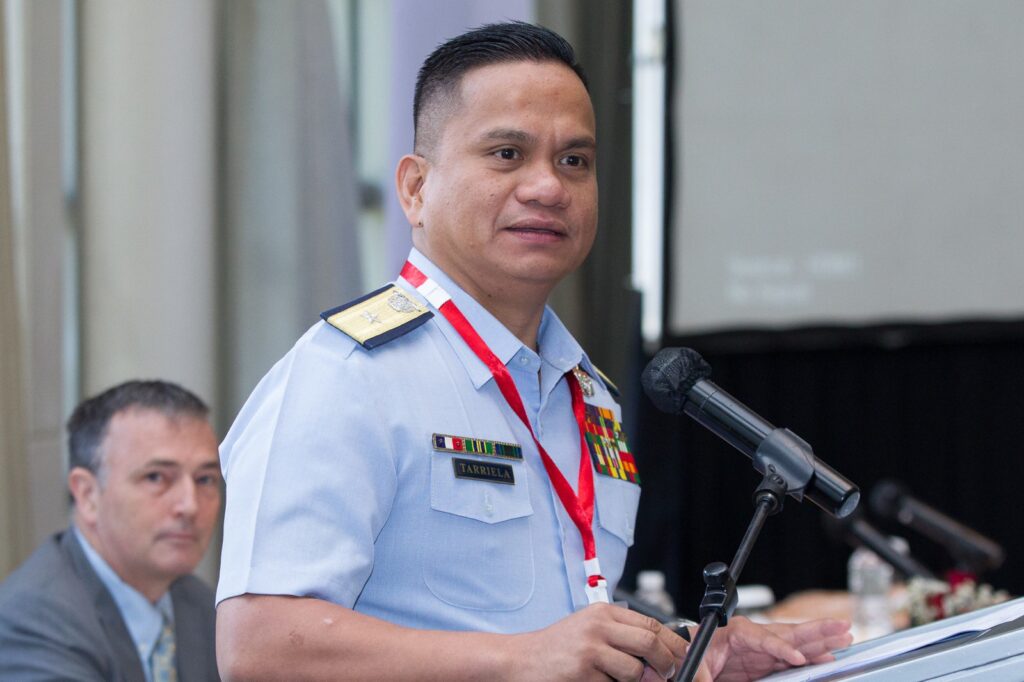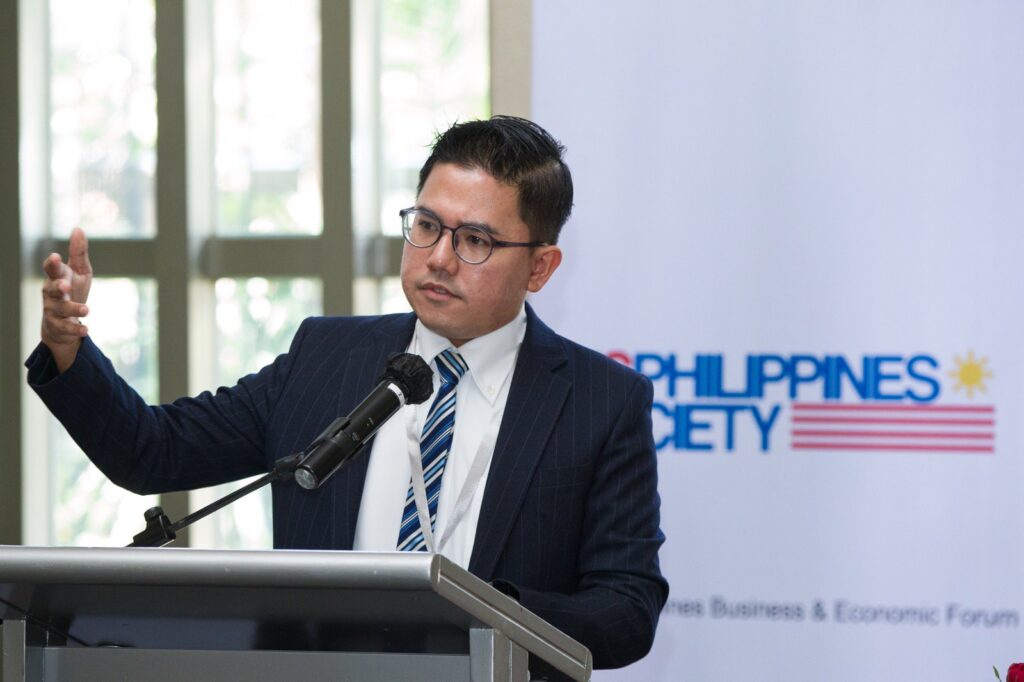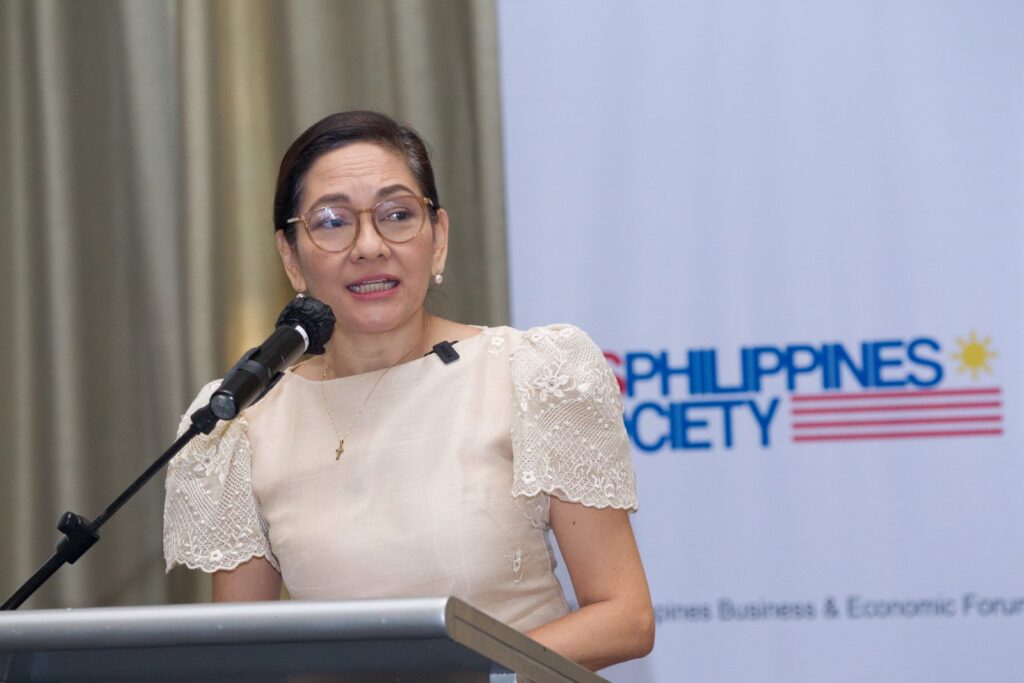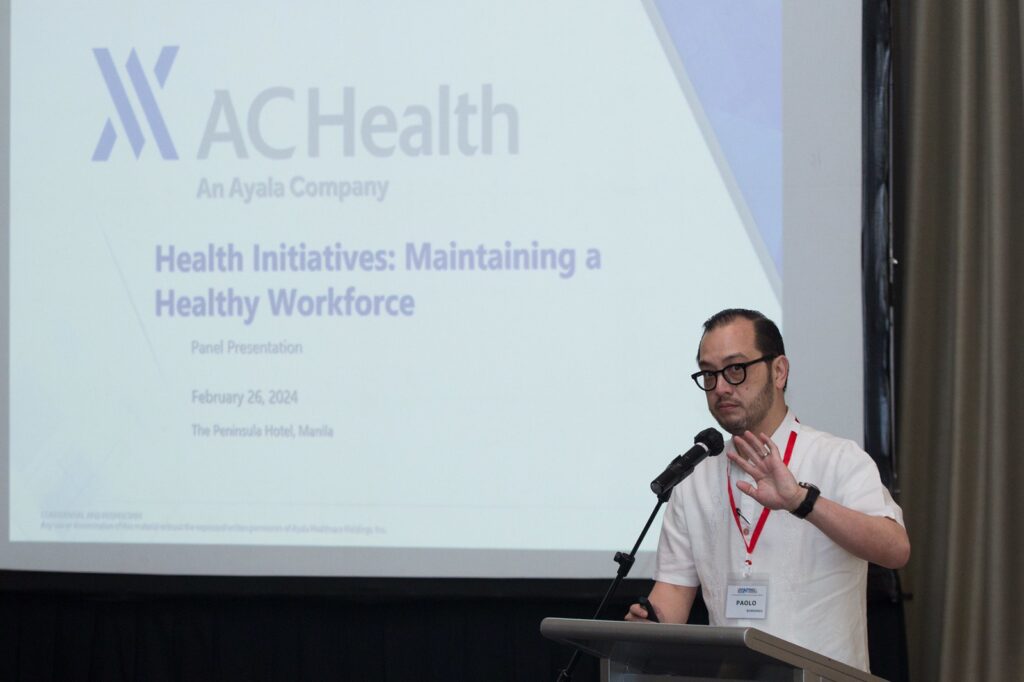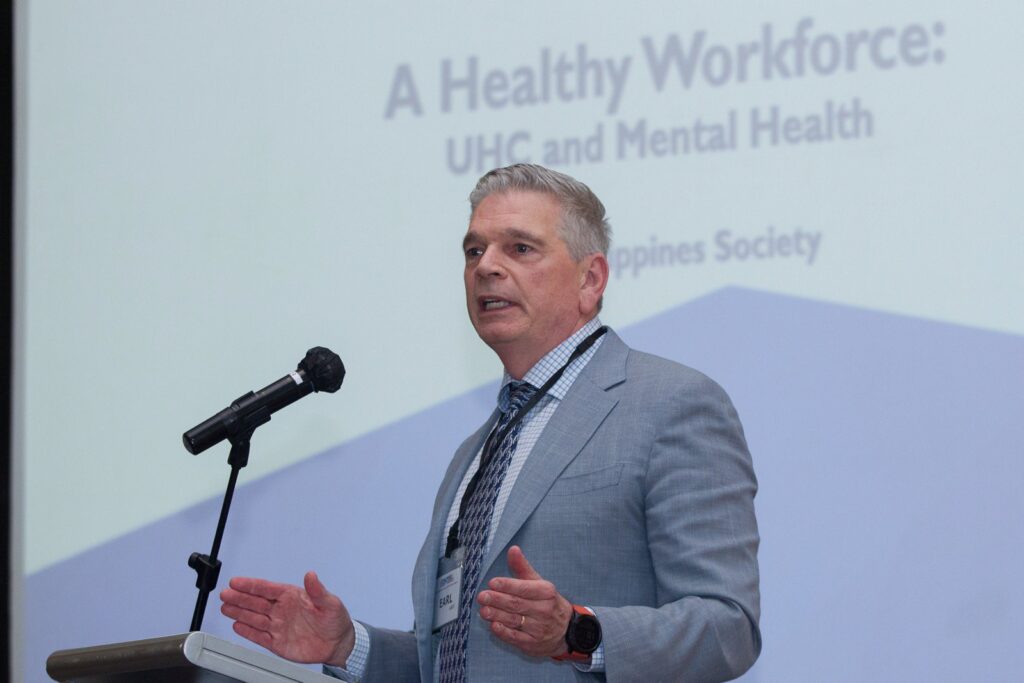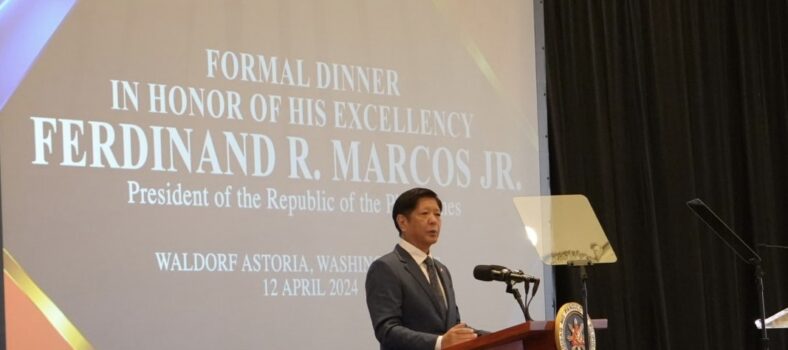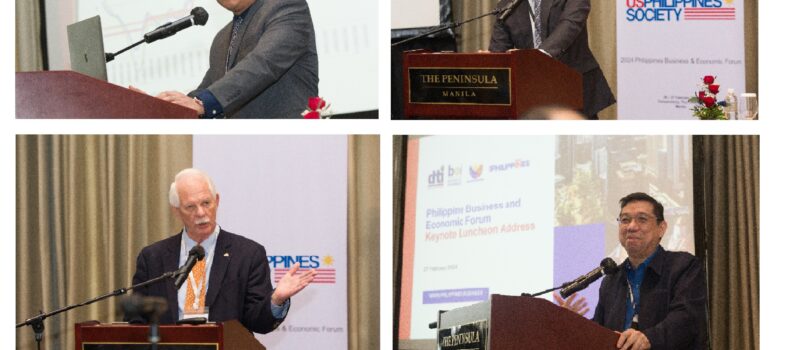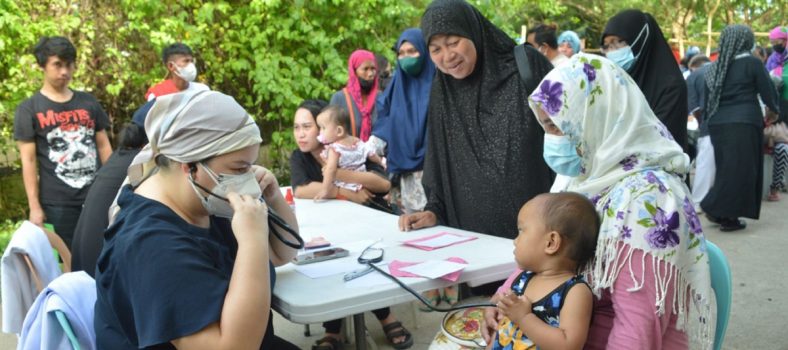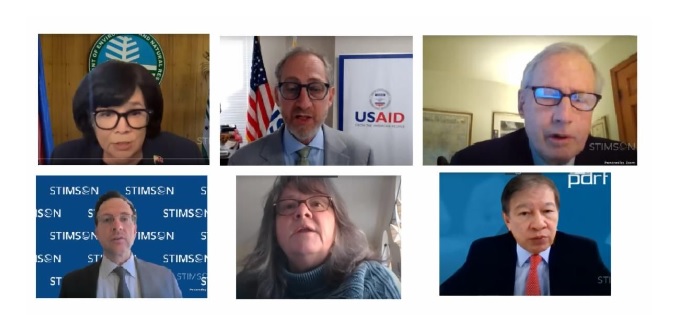Highlights of 2024 US-Philippines Society Board Meeting Program in Manila
A US-Philippines Society delegation led by Ambassador John Negroponte completed a highly productive four-day mission to the Philippines February 25-28, highlighted by a meeting with President Ferdinand Marcos, Jr., and exchanges with key members of the administration, business and civic leaders. Ambassador to the United States Jose Manuel G. Romualdez graciously hosted the President and Society members at a working Welcome Reception February 25, and incoming Society Co-chair Jaime Augusto Zobel de Ayala presided over the 2024 board of directors business meeting on February 27, providing guidance for plans and programs in the year ahead.
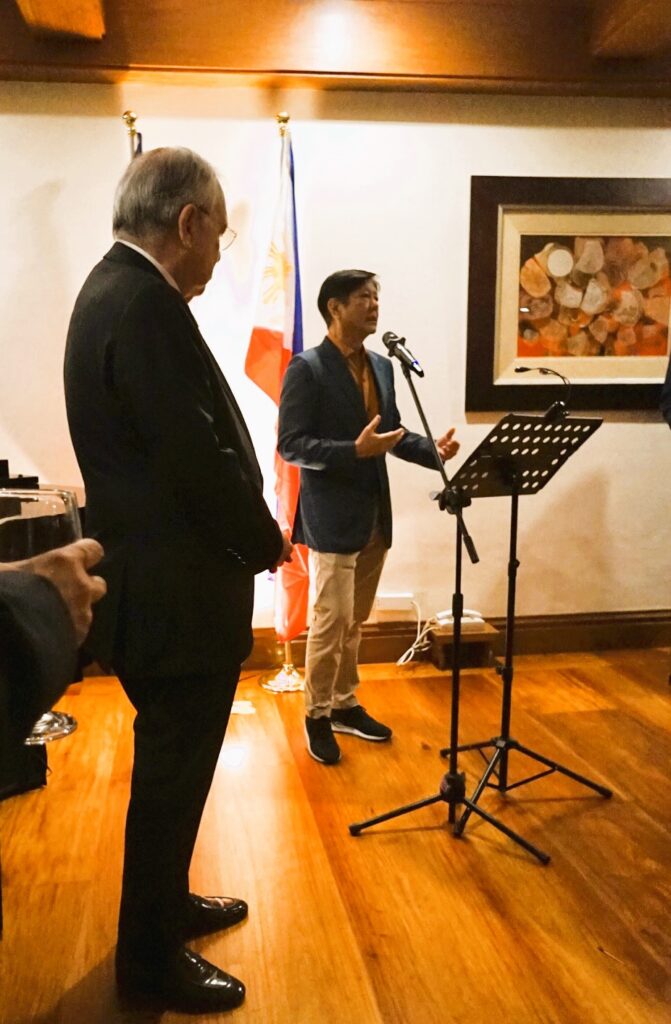
President Ferdinand Marcos Jr. and government officials met with US-Philippines Society delegation at the Welcome Reception hosted by Ambassador Jose Manuel Romualdez, 25 February 2024.
President Ferdinand Romualdez Marcos, Jr and cabinet members including Executive Secretary and former Chief Justice Lucas Bersamin, Foreign Affairs Secretary Enrique Manalo, Economic Adviser Secretary Frederick Go, Defense Secretary Gilberto Teodoro, Energy Secretary Raphael Lotilla, DICT Secretary Ivan Uy, National Security Adviser Eduardo Año, along with Senator Francis Tolentino and BCDA Chairman Delfin Lorenzana, met with the US-Philippines Society Directors and special guests, at a welcome reception hosted by Ambassador Jose Manuel Romualdez. Deputy Chief of Mission Y. Robert Ewing along with Consul General Mark McGovern represented the U.S. Embassy in Manila. 25 February 2024, Makati City.
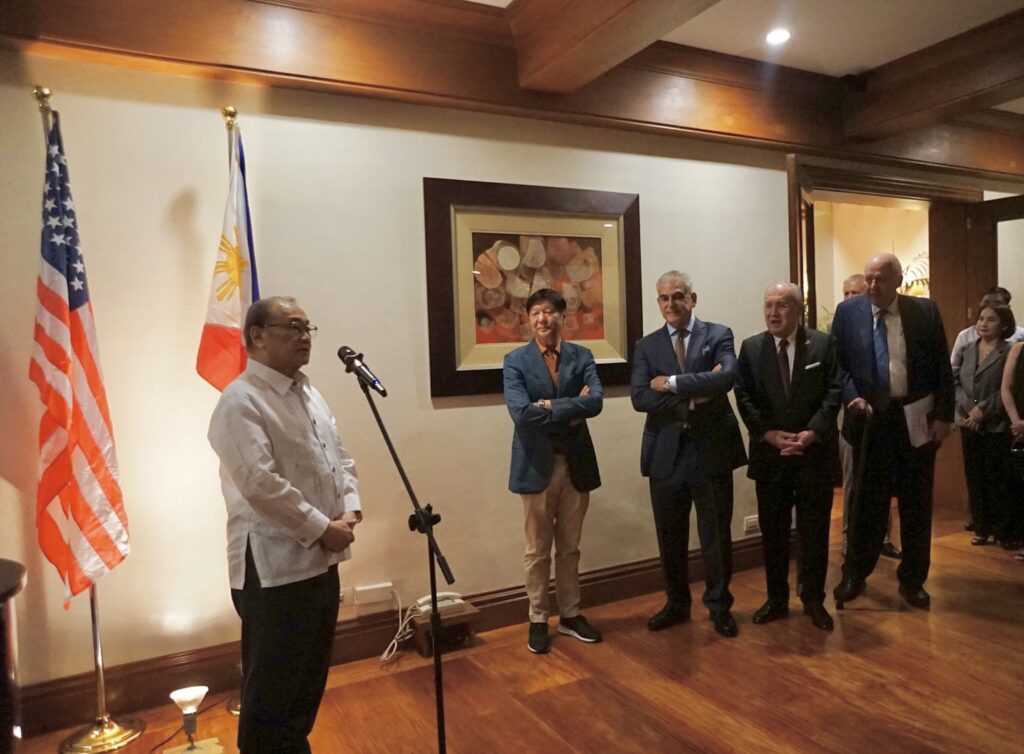
Outgoing US-Philippines Society Co-Chair Manuel V. Pangilinan was recognized for his leadership and commitment to the mission as founding Co-chair. Mr. Pangilinan expressed support for incoming Co-Chair Jaime Augusto Zobel de Ayala.
At the annual board meeting, the US-Philippines Society bestowed the 2024 Carlos P. Romulo Award to President Emeritus Amb (ret.) John F. Maisto in recognition of his foundational role in launching the US-Philippines Society, for guiding its organizational development, and providing trusted leadership as Society President for more than a decade. Directors expressed appreciation for his continued service as President Emeritus and member of the Board.
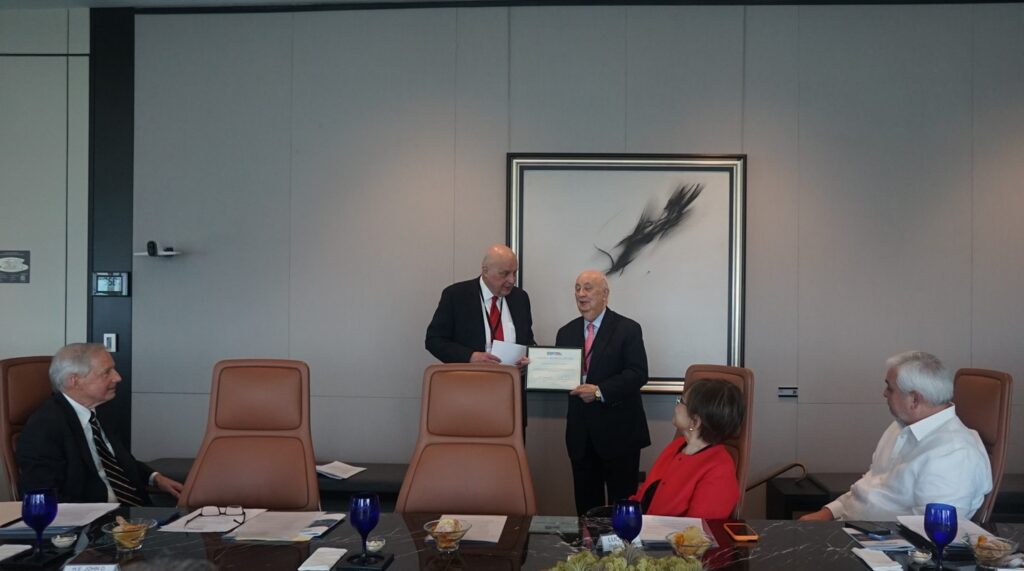
President Emeritus John F. Maisto receives the 2024 Carlos P. Romulo Award presented by Amb John D. Negroponte
The delegation joined with counterparts on the US-PH binational board in a comprehensive exchange of views with government and private sector leaders aimed at reinforcing bonds, promoting business opportunities, and strengthening cooperation.
The core two-day program (Part 2: What Investors Need to Know) held on February 26-27, provided directors with analyses of the economic, business and investment outlook, as well as areas of bilateral security and foreign policy cooperation, reflecting top priorities of the two governments. A series of panel presentations reviewed issues that directly impact the investment climate, including maintenance of regional and domestic peace and security that underpins investor confidence, availability of energy supplies that meets the needs of consumers and businesses, health initiatives to maintain a productive workforce, disaster response that ensures continuity of commercial operations, and women in leadership to expand human resources and unlock new 21st century opportunities. The program also served as a timely preview of the U.S. Presidential Trade and Investment Mission to the Philippines.
Philippine Foreign Policy and U.S.-Philippines Cooperation
In highlighting the opening session on Security and Foreign Policy, DFA Secretary Enrique A. Manalo detailed the administration’s foreign policy priorities and described broad areas of cooperation with the United States on both bilateral and global issues. Former U.S. ambassador to the Philippines and South Korea Thomas Hubbard provided an insightful tour d’horizon of the Indo-Pacific that linked developments in Northeast Asia through Taiwan and into the South China Sea with shared U.S. and Philippine interests and challenges.
Measured and Assertive Transparency in the West Philippine Sea
A follow-on session entitled, “Choppy Waters and Strategic Cooperation: South China Sea and Beyond” featured complementary presentations by three maritime experts: Raymond Powell, director of SeaLight at Stanford University; Commodore Jay Tarriela, Spokesperson on the WPS, Philippine Coast Guard; and Dr. Jeffery Ordaniel, Director for Maritime Security, Pacific Forum. The presentations provided up-to-date graphic depictions of maritime engagements and positioning of assets in the West Philippine Sea and described efforts to assert transparency and broaden public awareness.
National Security Policy Update
The “National Security Policy Update: Pivoting to Territorial Defense and Consolidating Peace in Mindanao” was led by Jonathan Malaya of the National Security Council and Isidro Purisima of the Office of the Presidential Adviser on Peace, Reconciliation and Unity, who described dividends for the AFP in shifting priorities to meet external defense challenges. Brian Harding of the U.S. Institute of Peace briefed on USIP peace-building programs in the BARMM and addressed opportunities for trilateral defense cooperation in the region, especially among the Philippines, Japan and the United States.
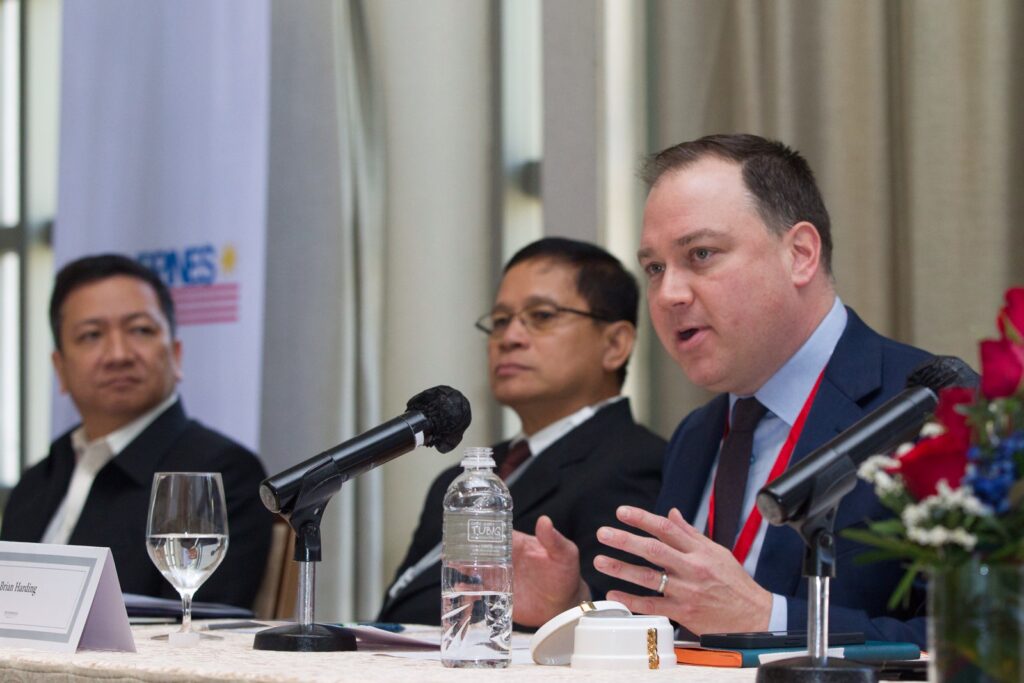
L-R: Panelists Jonathan Malaya (National Security Council), Senior Undersecretary Isidro Purisima (Deputy PAPRU), and Brian Harding (U.S. Institute of Peace)
Women in Leadership
Senator Risa Hontiveros delivered the February 26 luncheon keynote address, focusing on challenges posed by continued PRC assertiveness in the South China Sea and her interest in fostering US-PH cooperation on a range of transnational issues, including an acute need to curb human trafficking.
New Society director Marianne Hontiveros moderated an expanded session on “Women in Leadership” that featured testimonials from three leading Philippine women executives: Risa Mantaring, CEO of Sun Life Financial; Karen Batungbacal, Co-founder IBPAP, and Lorelie Osial, President Shell Philippines, who described their journeys to professional success, challenges and current priorities. Joining the panel were two American women CEO’s: Hedy Thomas, President of Leuterio, Thomas Architects; and Lucie Du, Co-founder Du & Associates. The binational panel presentation drew on lessons-learned for women competing in both the U.S. and Philippine business environments.
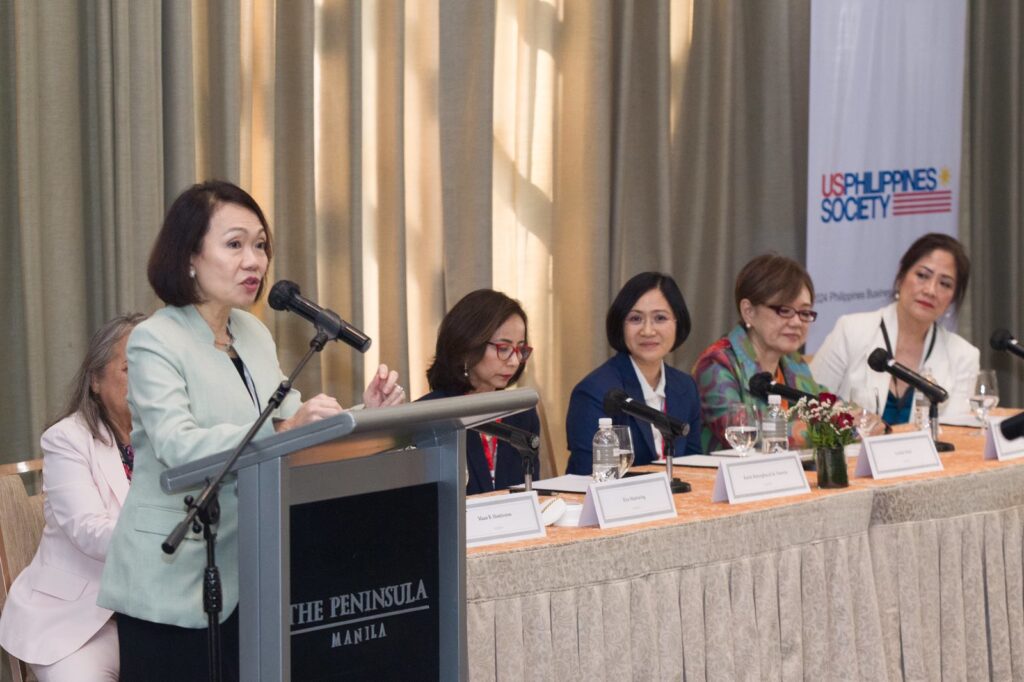
Panelists: l-r Riza Mantaring (Sun Life Financial Philippines), Maan Hontiveros (moderator), Karen Batungbacal de Venecia (IBPAP), Lorelie Osial (Shell Philippines), Lucie Du (Du & Associates), and Hedy Thomas (Leuterio Thomas Architects, LLC).
Accessible Healthcare Services for Working Families
The session on “Health Initiatives: Maintaining a Healthy Workforce” featured Paolo Borromeo, President of Ayala Healthcare Holdings, who described progress and challenges facing national healthcare in the Philippines, and the role for public-private sector and community-based cooperation. Society director Earl Gast, President of URC (a USAID implementing partner), broadened the discussion to include the importance of international cooperation, and described URC programs to combat the spread of TB and improve mental health services.
Disaster Resiliency and Emerging Technologies
DENR Secretary Antonia Yulo Loyzaga capped the February 26 program with a comprehensive presentation on “Disaster Response: Climate Change Impact and Resilience.” Guillermo Luz, Chief Resilience Officer at the Philippine Disaster Resilience Foundation followed the Secretary’s overview by underscoring the effectiveness of mobilizing the private sector for disaster response and resilience-building. John Ouellette of Versar Global Solutions briefed on emerging technologies designed to improve accuracy in weather forecasting and modeling to enhance protections for infrastructure, coastal communities and agricultural lands in the face of climate change.
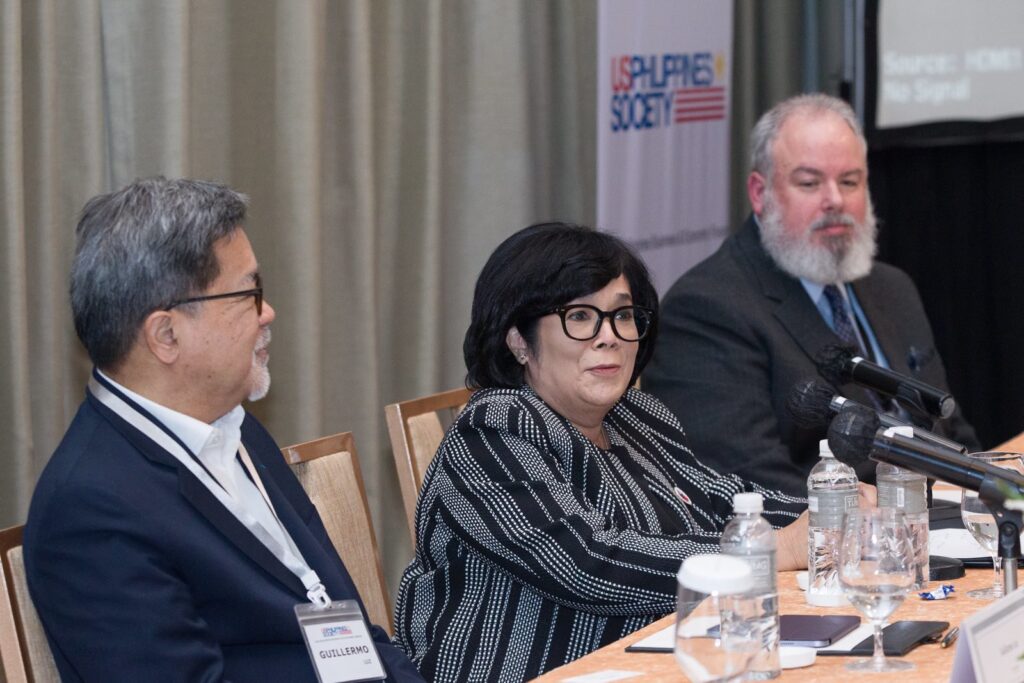
Department of Environment and Natural Resources Secretary Ma. Antonia Yulo-Loyzaga (center) with panelists Guillermo Luz (Philippine Disaster Resilience Foundation) and John Ouellette (Versar).

